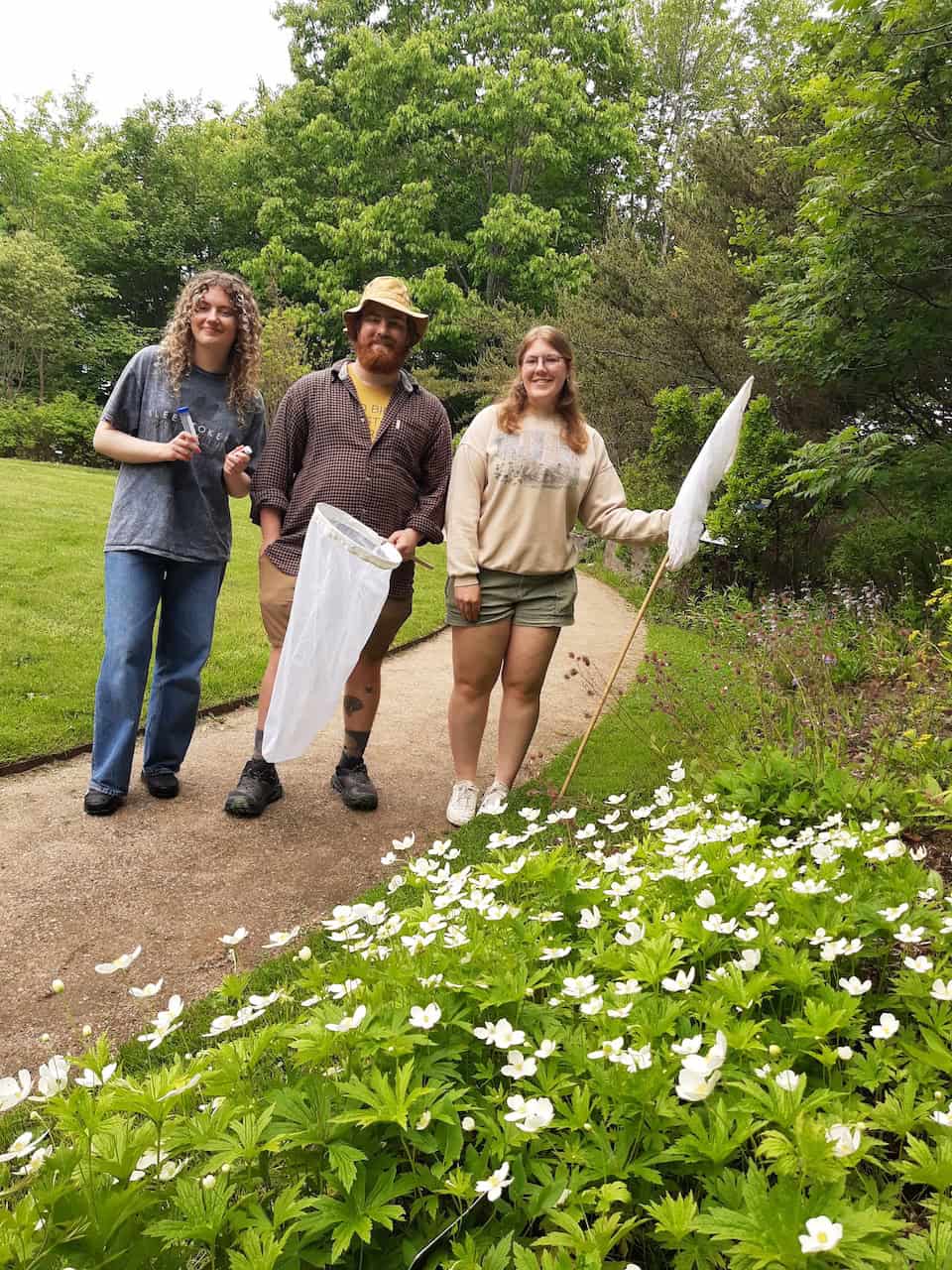
Monthly Bee Walks at the Harriet Irving Botanical Gardens
Join us at the Harriet Irving Botanical Gardens to learn about the fascinating lives of native bees!
Bee Walk Dates:
- Saturday July 19, 9:00-11:00 am
- Saturday August 9, 9:00-11:00 am this event will safely proceed in areas of the Gardens not impacted by the Provincial Fire Risk Measures.
- Saturday September 13, 9:00-11:00 am
Space is limited, please secure your spot by sending us an email at: kcirvingcentre@acadiau.ca or calling us at: (902) 585-1917. Pay what you can by donation.
Join Acadia University students Abby Danis, Tedi Pollak, Amanda Tracy and Jane Vurdela, and Terrell Roulston, Research Associate from Acadia’s Department of Biology, to learn how to catch and identify native bee species and discover the hidden world of bee diversity.
Abby, Tedi and Amanda are looking forward to sharing what they have learned during their Co-op placements at Agriculture and Agri-Food Canada’s native bee and landscape ecology lab at the Kentville Research and Development Centre where research activities are focused on the relationship between the land cover of agricultural systems and biodiversity including native bee communities. Jane is a graduate student studying impacts of insecticides, and Terrell is a plant-pollinator community ecologist.
Walks begin at the main entrance of the Harriet Irving Botanical Gardens (pavilion facing University Avenue) at 32 University Avenue on the Acadia University campus.
Accessible parking is available on Crowell Dr, across from the K.C. Irving Environmental Science Centre, and accessible washrooms are available in the Irving Centre. The speed and route of the walk will be adjusted to participants. Expect gentle hills and wheelchair accessible finely compacted gravel pathways. Benches are present throughout the Harriet Irving Botanical Gardens, and you will be encouraged to use them to soak up the beauty of the space.
Meet the experts
Abby Danis
Fourth Year BSc of Biology with Honours at Acadia University
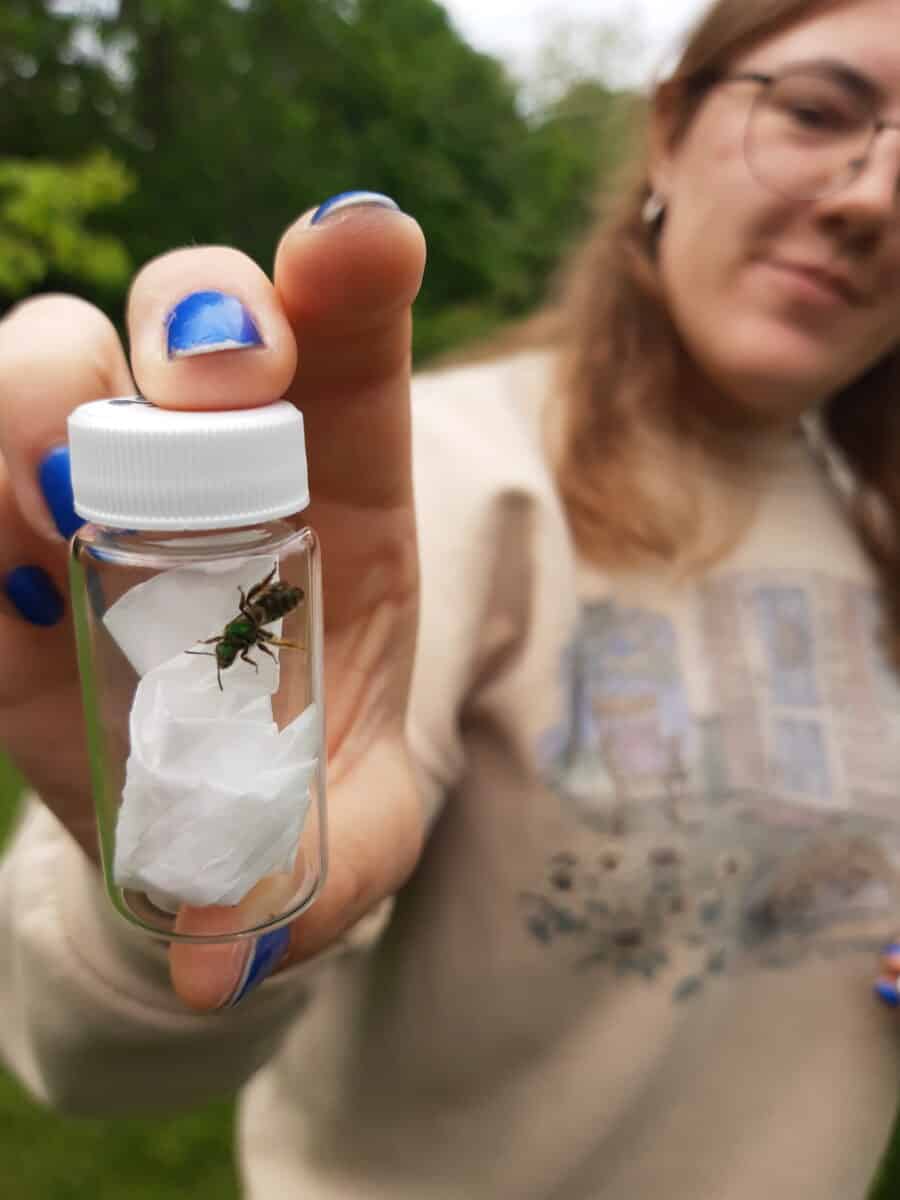
Abby’s Co-op work term at Agriculture and Agri-food Canada in the summer of 2024 inspired her to continue working with pollinators in her upper years at Acadia. She is currently working on an Honours project in Dr. Zoe Panchen’s plant ecology lab to understand the plant foraging preferences of pollinators. Abby is observing pollinator foraging patterns on native plant species, as well as analyzing pollen samples collected from bees that visit the Harriet Irving Botanical Gardens.
Abby reflects: “Many Nova Scotians are unaware of the richness and diversity within the local bee community. The bee walks hosted at the Harriet Irving Botanical gardens offer a unique opportunity for everyone to familiarize themselves with the pollinators and plants that occupy their neighborhood!”
Tedi Pollak
Fourth Year BSc of Biology with Honours at Acadia University
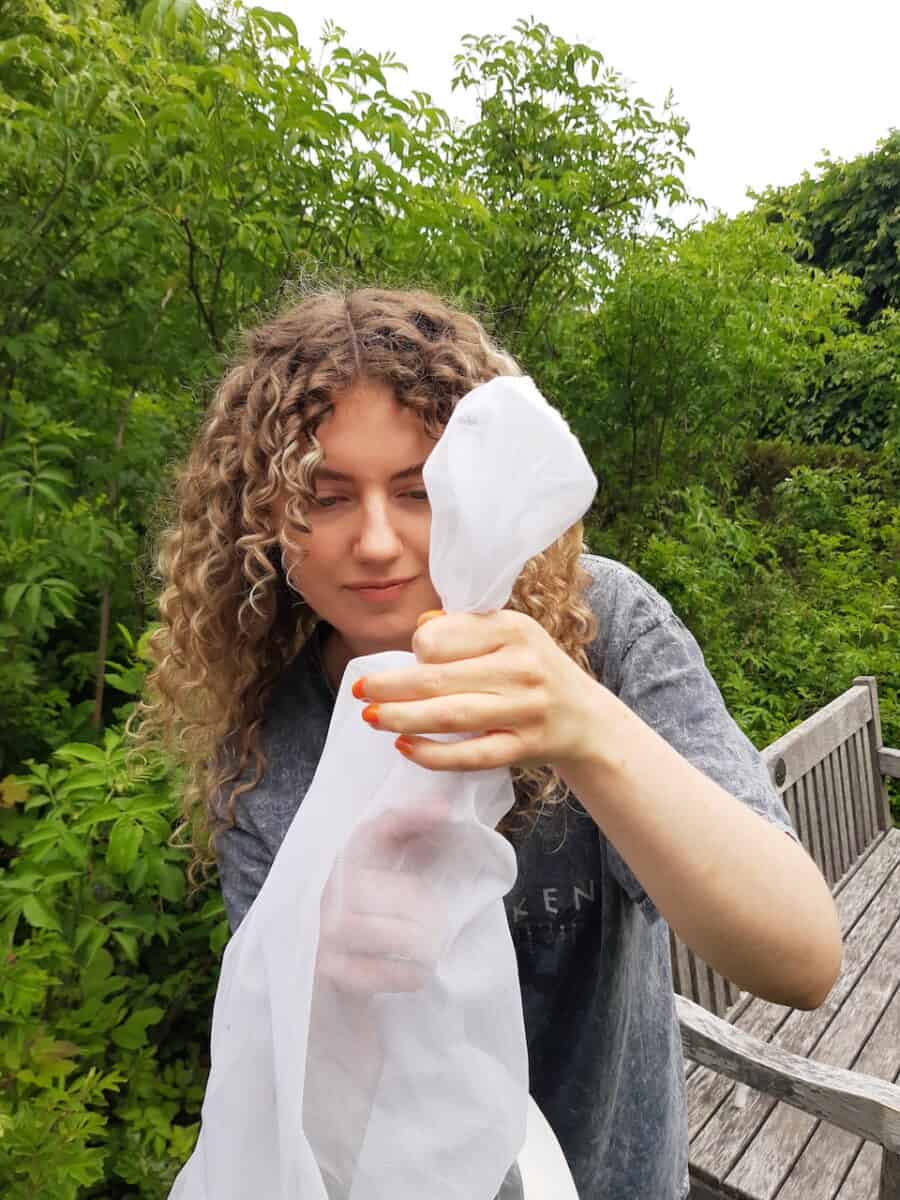
Tedi’s introduction to the world of bees started in the winter of 2025. Her Co-op work term at Agriculture and Agri-food Canada connected her with other bee enthusiasts, and the team is now collaborating on pollinator outreach with the Harriet Irving Botanical Gardens. She is excited for the opportunity to extend her bee knowledge outside of the lab and into the field!
Tedi shares “ It is amazing how much your appreciation for something grows when you learn a little more about it. When people are more informed about native bee life, they are more likely to strive to protect it. That’s why events like these bee walks are so valuable, they offer a fun environment to learn something new about the place you live in, and they start up important conversations in the community.”
Amanda Tracy
Fourth year BSc of Environmental Science and Biology with Honours at Acadia University
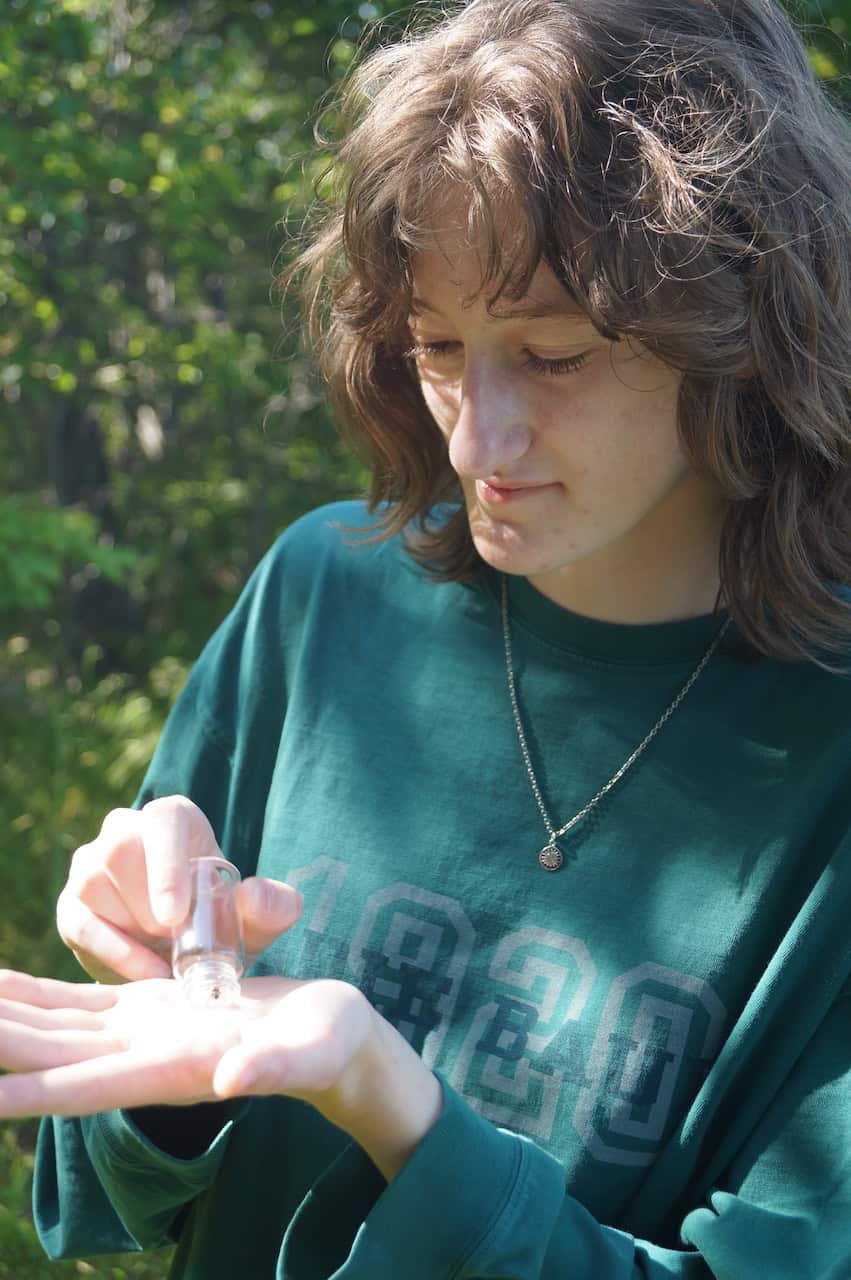
Amanda completed a Co-op work term at Agriculture and Agri-Food Canada in the summer of 2024. Learning about the importance of bees in ecosystems and how to identify them sparked Amanda’s love of bees. They are currently completing an Honours project investigating the presence of microplastics in bee populations across landscapes with varying levels of human influence.
Amanda says: “If I was asked a few years ago to pick out a bee from a lineup, I would have only picked out a bumble bee. I might have been able to pick out a honey bee, but likely would have hesitated, second guessing if it might be a wasp. Working with native bees, I learned about the rich diversity we have right here in Nova Scotia! I hope our bee walks get people interested in the importance of these native pollinators in our communities, and how looking at things just a little closer can reveal a lot about an environment.”
Jane Vurdela
MSc of Biology at Acadia University
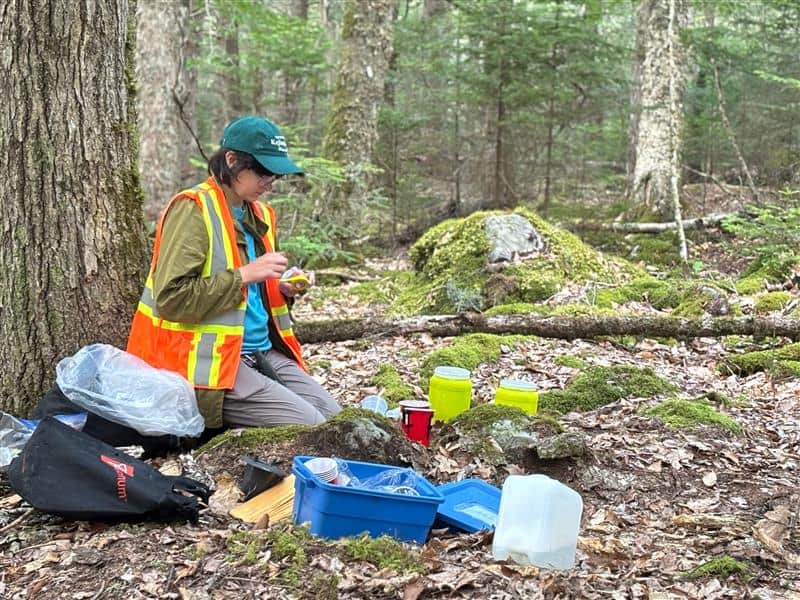
Through her masters at Acadia in Dr. Kirk Hiller’s chemical ecology and sensory physiology lab, Jane is studying the effect of insecticides used to control the spread of invasive Hemlock Woolly Adelgid on ground-nesting bees. Using the collections of wild bees and experiments on captive bees, Jane hopes to get a clearer picture regarding the impacts of tree mortality on bee biodiversity and the potential impacts of insecticides on bee behaviour and survival.
Jane mentions “Through community outreach, I wish to spark love for vital, but often under appreciated, species of bees.’’
Terrell Roulston
Research Associate, Acadia University Department of Biology
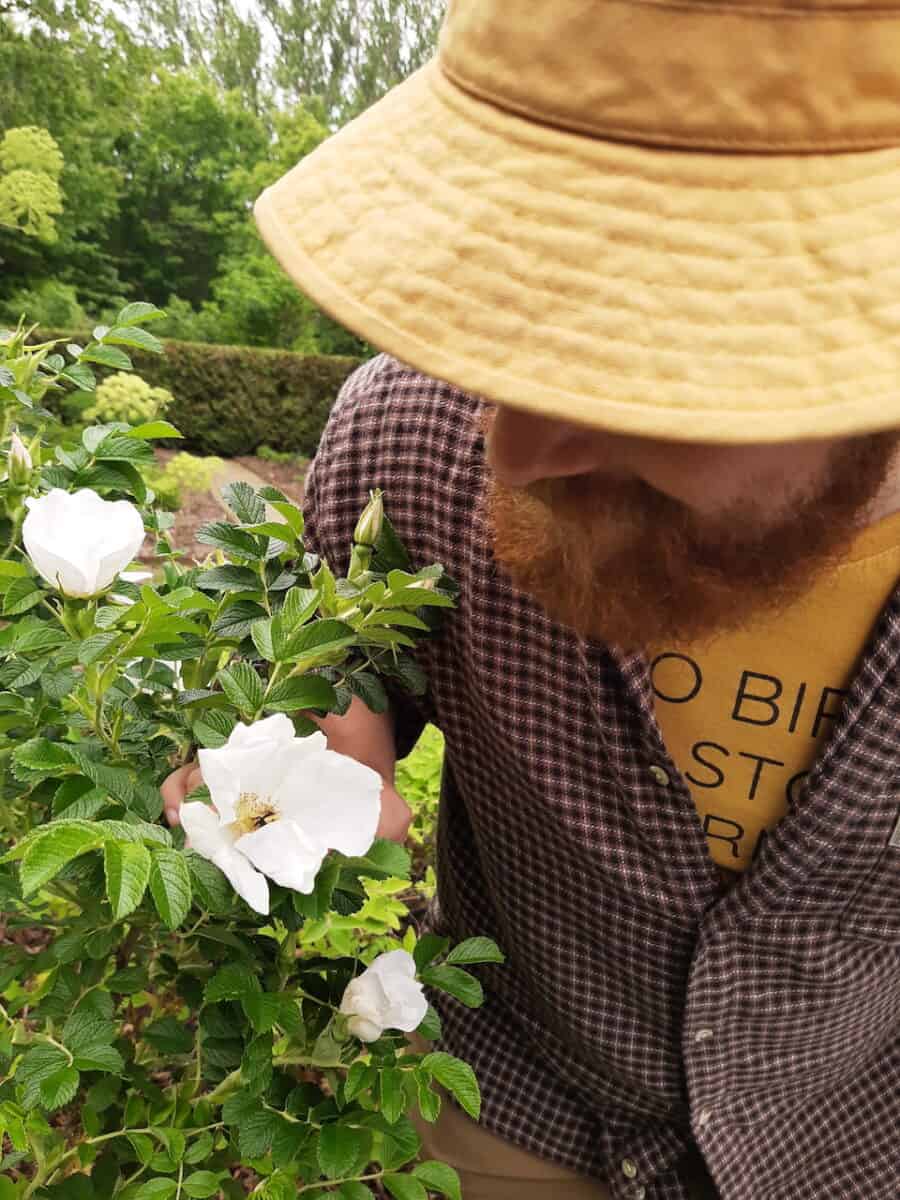
With an academic background in plant-pollinator community ecology from Saint Mary’s University (BSc Hons) and the University of British Columbia (MSc), Terrell has contributed to pollinator education and outreach through guest lectures at Acadia University (BIOL3243, BIOL4423), as well as many other outreach events at the UBC Botanical Garden. He launched the Harriet Irving Botanical Garden Native Bee Brochure at this year’s Native Plant Sale, and he is partnering with Acadia University students to lead bee walks this summer.
Make sure to secure your space in a Bee Walk today!
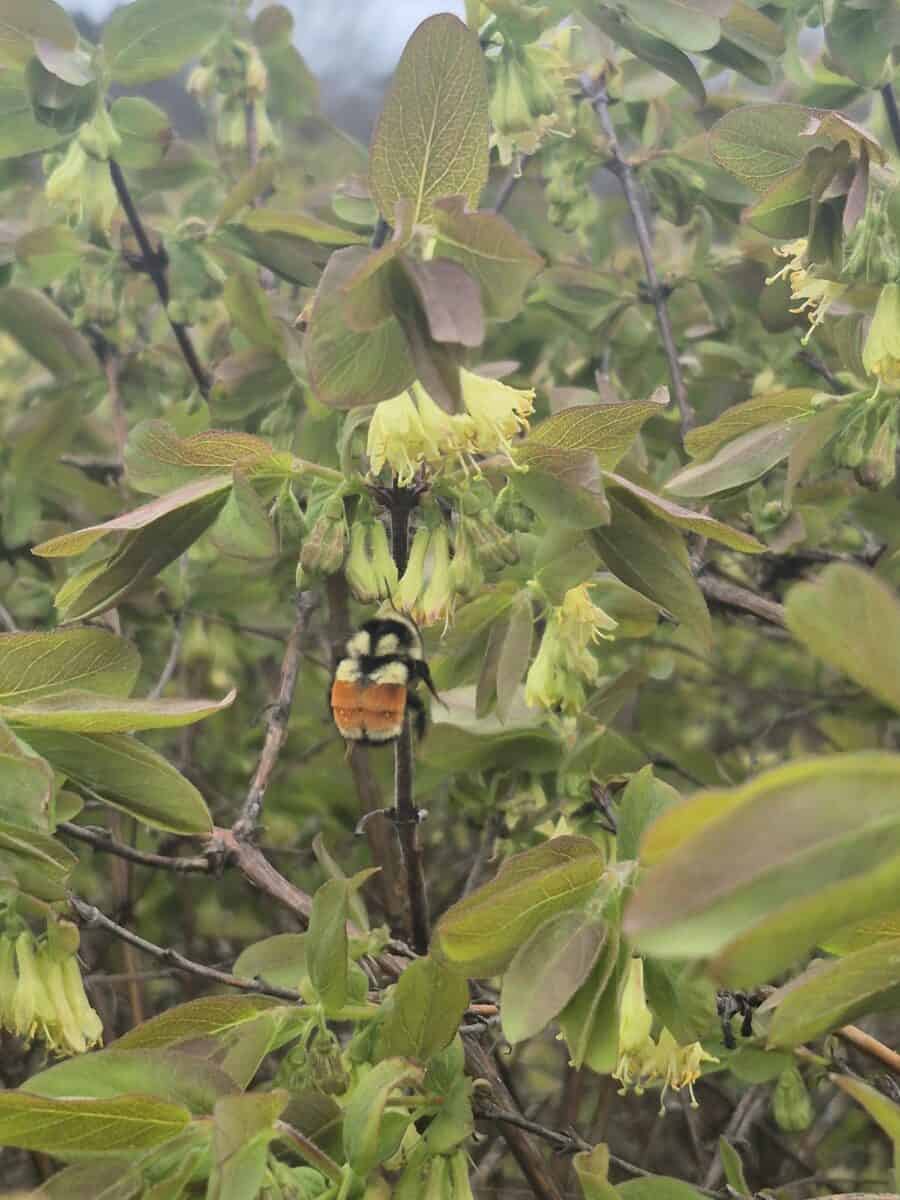
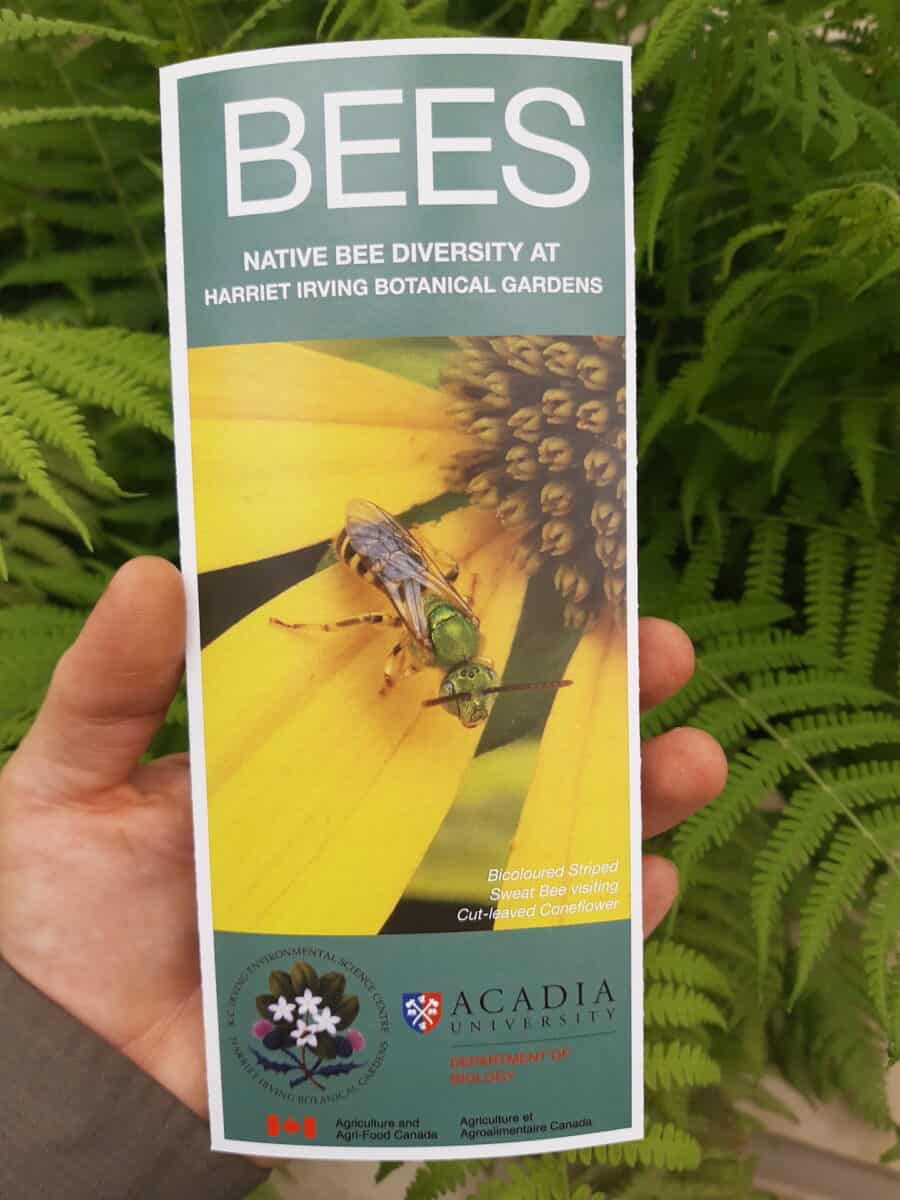
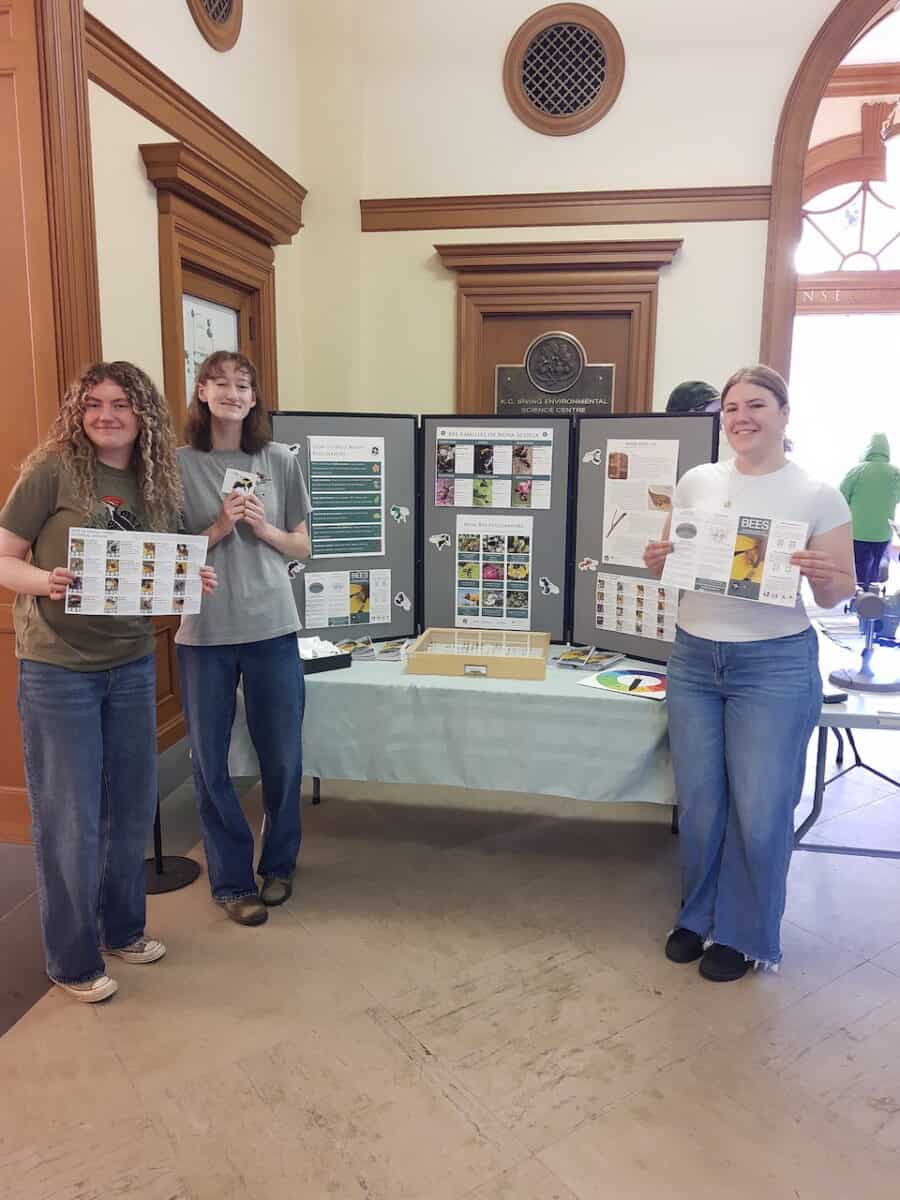
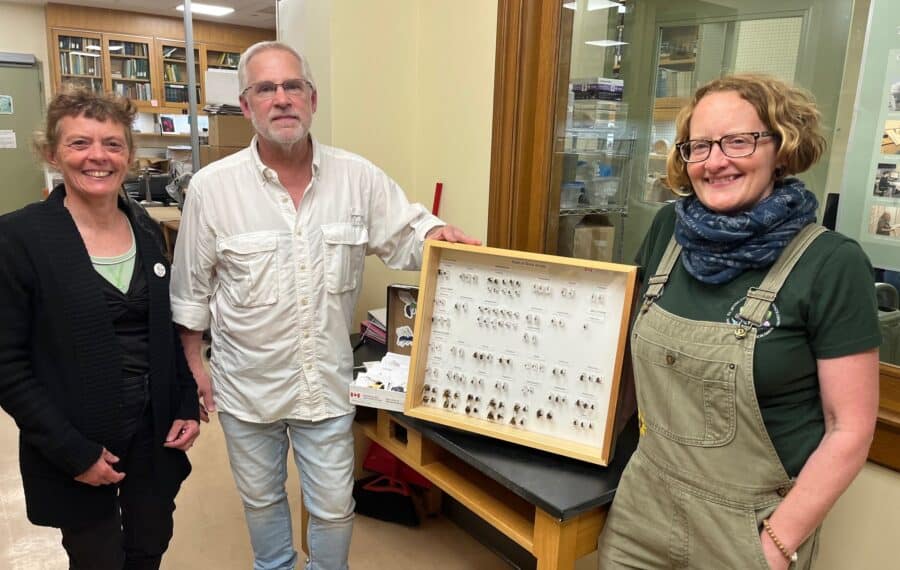
Check out our new bee display next time you visit the K.C. Irving Environmental Science Centre. Special thanks to Dr. Steve Javorek, Landscape Ecologist and Bee Specialist at Agriculture and Agri-Food Canada for the inspirational mentorship that he provides Acadia’s Co-op students. For more information on the Co-operative Education Program at Acadia visit https://co-op.acadiau.ca/Co-op_Home.html.


 Acadia University
Acadia University